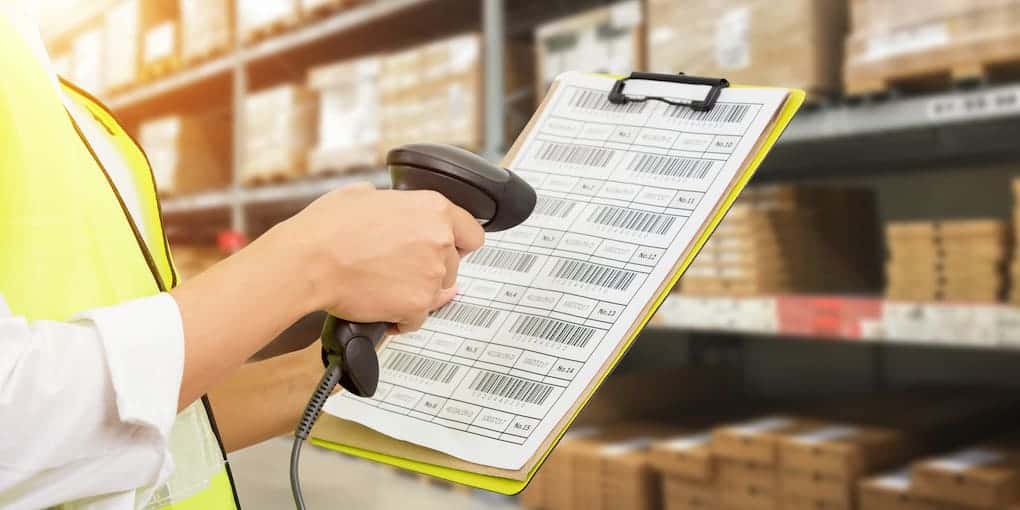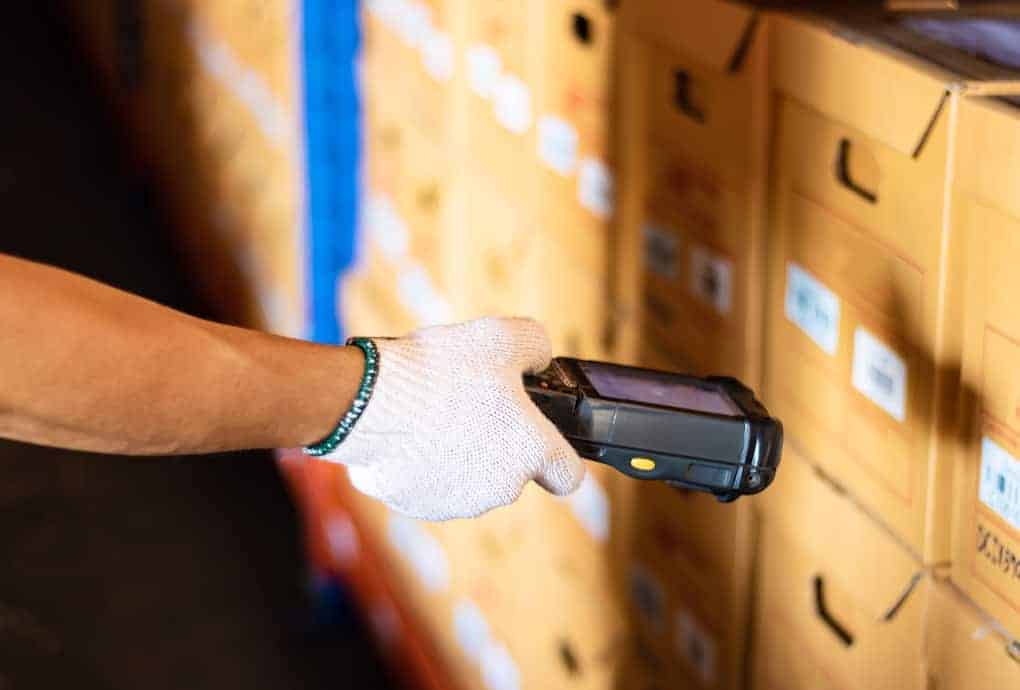It seems that more and more these days, we hear about recalls from parts on cars to the ground turkey you just stocked in your fridge.
This brings us to the question of how the manufacturer knows which products are bad and which ones need to be recalled. After all, they were all produced in the same place, so shouldn’t they all be the same? It’s situations like this where lot numbers can come to the rescue.
If you’re thinking to yourself, “What is a lot number?” you’re about to find out.
What Is a Lot Number? Your Question Answered
A lot number is an identification number assigned to a certain quantity or group of products from a single manufacturer. If you’ve never heard of a lot number before, you may have heard it under a different name. It can also be called a batch number, code number, or lot code.
Lot numbers are a combination of numerical digits that are then assigned to a group of products with similarities. If you are unsure of where these numbers are, you can typically find them outside the packaging.
Many companies will have a different way of assigning lot numbers to their products. Some factors that determine these differentiations can be based on the date of manufacture, location, expiration date, or a combination of different numbers. However, one thing that won’t change is that a lot number is a unique group of digits applicable to that specific group of products.
One important thing to know is that a lot number is only applied to one batch of products. However, all of the items in that batch will have the same lot number.
Why Is It Important?
Lot numbers are important for several reasons, such as inventory management and avoiding crises during a recall. A reliable inventory software system such as Extensiv Warehouse Manager helps you do just that. Having all the information you need at a glance not only increases efficiency but saves you time, money, and energy.
Inventory management is one of the most important parts of your business. It ensures that you have the right amount of items in stock, so you don’t run out of what the customer is asking for.
Having good inventory management also helps ensure you are not over- or under-ordering products for your warehouse. You shouldn’t have to guess the quantities of certain items you need.
When you throw lot numbers into the equation, you receive even more precision with ordering, shipping, reception, and restocking.

When To Use Lot Numbers
The most common situations where lot numbers are used are recalls, product differentiation, and expiration dates. Food, beverage, and drug companies tend to be the ones that use lot numbers the most, but that doesn’t mean they aren’t used outside of those particular industries. An example would be a clothing product that was made the wrong color.
Recalls: They happen more than you would think. If you ever happen to deal with a recall situation, you want to be sure that you are on top of the situation as quickly as possible.
No matter the situation you find yourself in, you will want to be sure to take care of it as quickly as possible.
To prepare for this type of situation, you want to have many numbers in place to help you manage the problem.
Product Differentiation: Lot numbers are a must for a business that handles products that have only slight variations in their color, size, feel, and other criteria. This helps to make sure products that are not supposed to match up or are a little different don’t get mixed up, and the right items are distributed to the correct places.
Expiration Dates: When dealing with food and drink products, having a lot number is especially important. You need to be sure that the food and drink products are being shipped from the warehouse well before their expiration date comes up. This way, you are sure you are putting out high-quality, safe-to-consume products. With cloud-based technology, you will be alerted when the product expires. Throw it out, order fresh products, and keep everything up to date.
Quality Assurance: Having lot numbers in the QA process can help a lot. As you test products from different batches, you can locate the lot number of defective items. If there are other items in that same batch that are defective, you will know which items you need to pull. So instead of having to take all of those items down from the shelves, you just take down the ones with that lot number.
Legal Compliance: Several government organizations, including the FDA, may require lot numbers and lot tracking for food and drug companies. Make sure to research where you are operating from and what you are selling to comply with these guidelines.
Where Can I Find the Lot Number on Products?
The lot number is typically a series of digits that can be found on the product itself and the packaging. It is also sometimes included in the product code. If you are having trouble finding it, contact the manufacturer, and they should be able to help you locate it.
You should know where they’re at on all of your products to help ensure that you can keep track of everything.

Difference Between Lot Number and Serial Number
A common question is: what’s the difference between a lot number and a serial number? As we mentioned earlier, the lot number of products from the same batch will be the same.
When it comes to the serial number, things get a little different. Instead of having the same number for every product in the batch, each serial number will be different.
Serial numbers are going to be a lot more exact than lot numbers. They can help you differentiate different products from one another and individual products that are the same model.
Serial numbers are a big difference-maker when it comes to tech products like cell phones, laptops, and other big technology sources. They can help distinguish individual models from one another, which makes things much easier to deal with. It helps the support team locate the specific product so they can provide high-quality support.
Lot Number vs. SKU: What’s the Difference?
You might also be wondering what the difference is between a lot number and an SKU. It’s common to get all the different numbers confused. Here’s how the breakdown works.
A SKU or (Stock Keeping Unit) is a number used to identify products in a store’s inventory. It is usually a unique number that is assigned to each product. Unlike a serial number, the SKU is the same for an entire line of products. This number is used internally by the store, or given to the manufacturer for help tracking.
As we discussed earlier, a lot number is a series of numbers that are assigned to a batch of products when they are manufactured. This number is used to track the items produced in the same lot and helps with quality assurance and inventory management.

Compliance With Lot Number Regulations
As we mentioned before, it’s important to comply with lot number regulations. Regulations can vary depending on the location of your company, but there are some general guidelines that you should follow.
Make sure to research the specific requirements for your company and products. Here are a few things to keep in mind:
- Including a lot number on products and in documentation
- Tracking the history of each lot number
- Retaining records associated with a lot number
- Destroying or disposing of products and materials associated with a lot number once it has expired or been recalled.
The importance of lot tracking cannot be overstated, especially regarding quality assurance. Your customers and warehouses deserve that you handle this situation properly.
Tracking Lot Numbers With Help From Scout
What is lot tracking? Simple. It is the process of recording how each product moves in and out of your inventory. You can make tracking your inventory more effective by using an inventory management tool such as Extensiv Warehouse Manager. Extensiv Warehouse Manager will allow you to track inventory and keep you updated on every product as it moves in and out of your warehouse. Get a free demo by filling out this form today!
You will always know exactly what you have in stock and what items are running low on stock. You can access this information from any tablet, mobile barcode scanner, or smartphone and stay on top of inventory no matter the size.
Don’t settle for manual input of content and lot tracking. Use the tools your company deserves to provide you with the very best lot tracking technology.
-
You’ll read about:
Be the first to know
Subscribe to our newsletter





